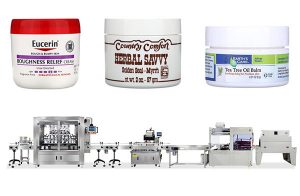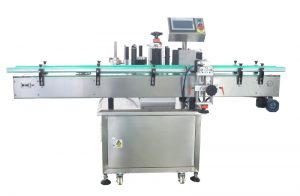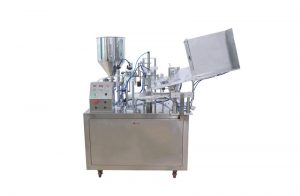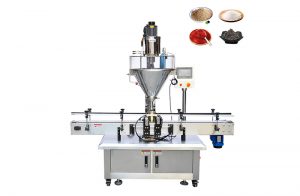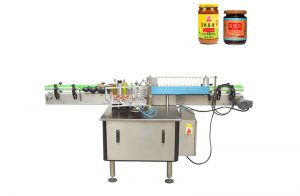In the landscape of modern manufacturing, precision, efficiency, and reliability are paramount. One key player in this realm is the quantitative filling machine, a cornerstone of industries ranging from pharmaceuticals to food and beverage, cosmetics, and chemicals. But what exactly is a quantitative filling machine, and why is it indispensable in various production lines?
Understanding Quantitative Filling Machines
A quantitative filling machine, as the name suggests, is designed to dispense a precise volume of liquid or semi-liquid products into containers. This precision is achieved through advanced technologies and mechanisms that ensure each fill is consistent, minimizing waste and enhancing product quality. These machines are integral to operations where exact measurements are crucial, such as in pharmaceutical manufacturing where dosage accuracy can impact product efficacy and safety.

Key Components and Mechanisms
Quantitative filling machines are complex systems comprised of several critical components:
Filling Heads: These are the dispensing nozzles that release the product into containers. Depending on the machine type, filling heads can range from a single nozzle to multiple nozzles, allowing simultaneous filling of multiple containers.

Pumps and Valves: Pumps drive the product through the machine, while valves control the flow, ensuring the correct amount is dispensed. Common pump types include peristaltic, gear, and piston pumps, each suitable for different viscosities and product types.

Control Systems: Advanced quantitative filling machines incorporate sophisticated control systems, often computerized, that monitor and adjust the filling process in real-time. These systems can handle complex filling schedules and ensure compliance with stringent regulatory standards.

Sensors and Feedback Loops: Sensors detect the fill level and feedback loops adjust the filling process dynamically. This real-time adjustment capability is crucial for maintaining accuracy and compensating for variables such as changes in product viscosity or ambient temperature.
Types of Quantitative Filling Machines
Quantitative filling machines come in various types, each suited to specific applications and product characteristics:
Volumetric Fillers: These machines dispense a precise volume of product, ideal for free-flowing liquids. They are commonly used in the beverage industry.
Piston Fillers: Utilizing a piston mechanism, these machines are suitable for viscous products like creams, pastes, and gels. They offer excellent precision and can handle a range of container sizes.
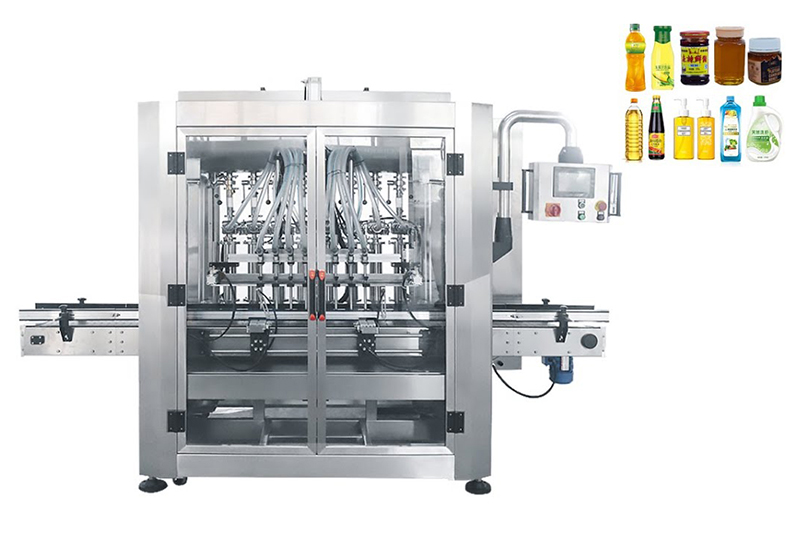
Peristaltic Fillers: These are often used in pharmaceutical and biotech industries due to their hygienic design. They operate by squeezing a tube, pushing the product forward, which ensures no contamination and easy sterilization.
Net Weight Fillers: Particularly useful for high-value products, these machines weigh the container before and after filling to ensure the exact amount of product is dispensed. This method is prevalent in the chemical and specialty food industries.

Benefits of Using Quantitative Filling Machines
The adoption of quantitative filling machines in manufacturing offers numerous advantages:
Accuracy and Consistency: Ensuring each container receives the exact amount of product enhances product quality and compliance with regulatory standards.
Efficiency: Automated filling processes reduce manual labor, minimize errors, and increase throughput, leading to cost savings and higher production rates.
Flexibility: Modern filling machines can handle a wide variety of products and container types, allowing manufacturers to switch between different product lines with minimal downtime.
Scalability: From small-scale operations to large production lines, quantitative filling machines can be scaled to meet the demands of any production volume.
Applications Across Industries
Quantitative filling machines are indispensable in several industries:
Pharmaceuticals: Precision is critical for dosing medications, and quantitative filling machines ensure each unit meets stringent quality standards.

Food and Beverage: From bottling beverages to filling sauces, these machines provide the accuracy required to maintain consistency and compliance with food safety regulations.
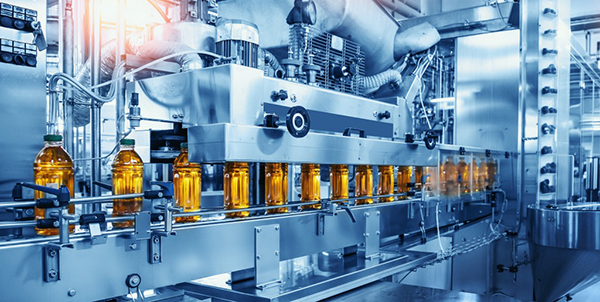
Cosmetics: In the cosmetics industry, filling machines handle a range of product viscosities, ensuring each bottle, jar, or tube is filled with the right amount of product.

Chemicals: For both hazardous and non-hazardous chemicals, quantitative filling machines offer the precision needed to manage costs and ensure safety.
Future Trends and Innovations
The future of quantitative filling machines is marked by continuous innovation. Key trends include:
Integration with IoT and Industry 4.0: Modern machines are increasingly connected, allowing for real-time monitoring and predictive maintenance, reducing downtime, and improving efficiency.
Advanced Materials and Designs: New materials and machine designs are enhancing durability and reducing contamination risks, particularly important in the pharmaceutical and food industries.
Sustainability: There is a growing emphasis on developing machines that reduce waste and energy consumption, aligning with broader sustainability goals.
Conclusion
Quantitative filling machines are a testament to the advancements in manufacturing technology, ensuring precision, efficiency, and reliability across various industries. By understanding their components, mechanisms, and applications, manufacturers can leverage these machines to enhance their production capabilities and maintain competitive edge.
If you’re looking to optimize your production line with cutting-edge quantitative filling solutions, contact us at VKPAK Machine today. Let’s discuss how our innovative machines can meet your specific needs and drive your business forward.

